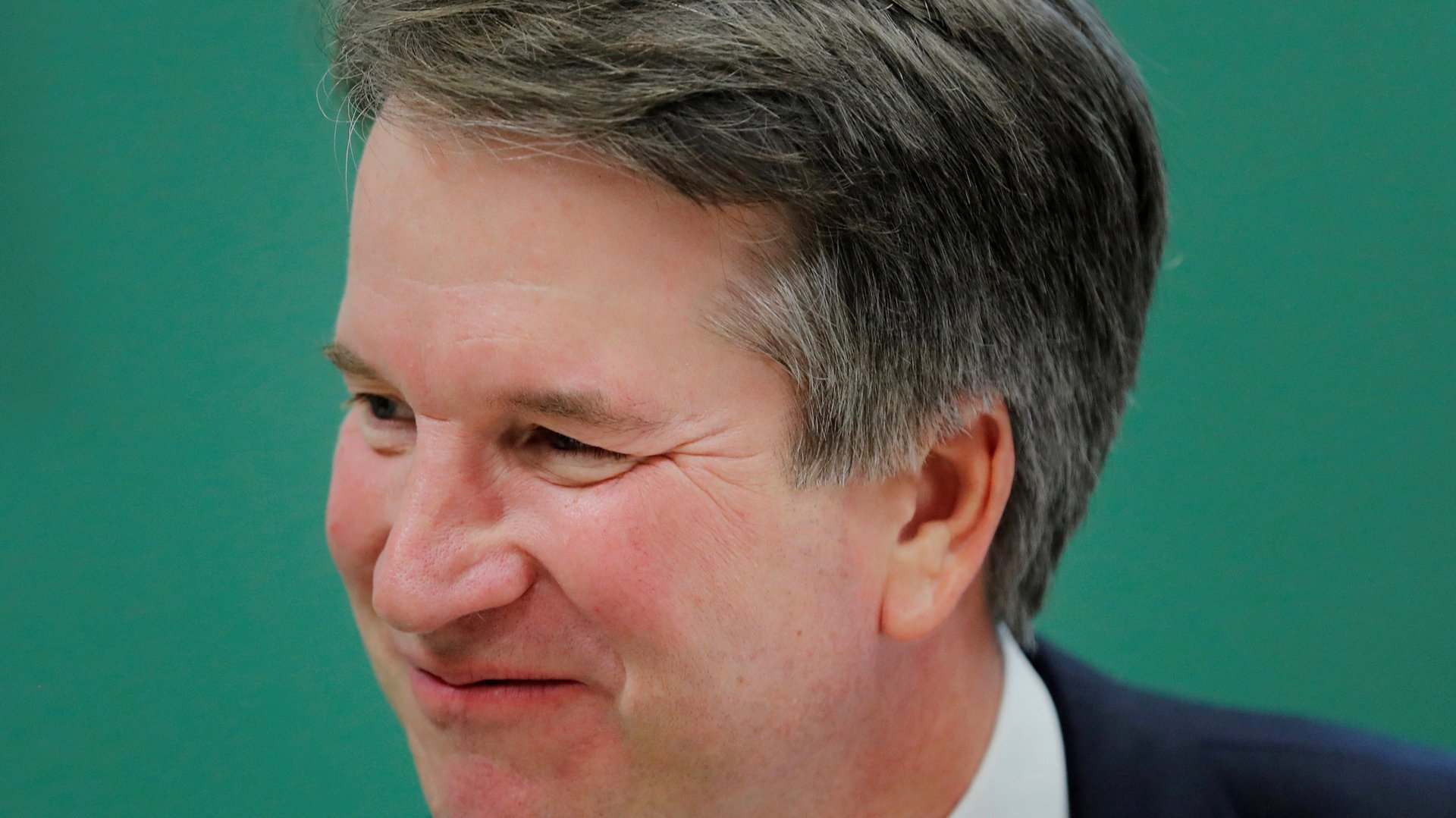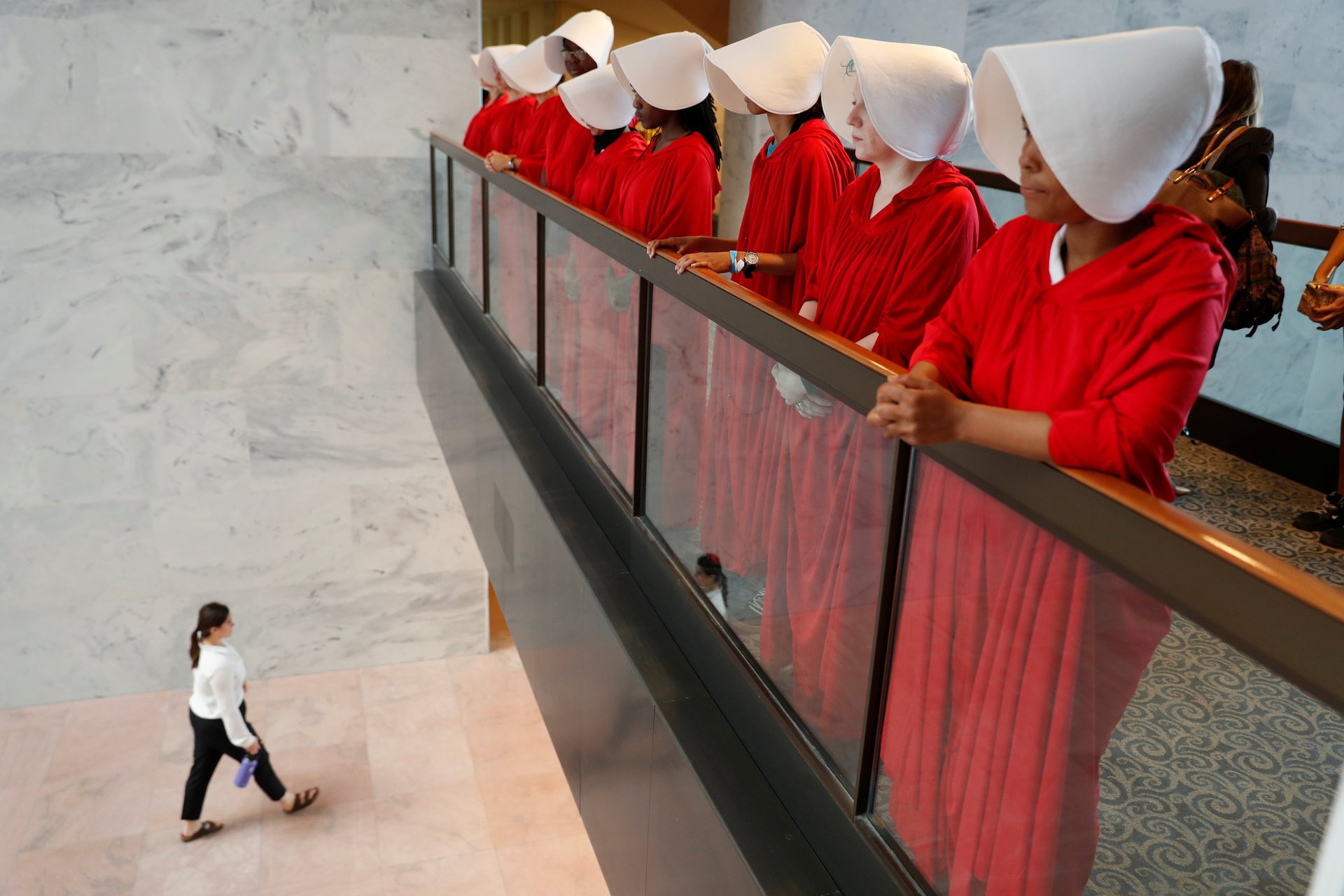The Kavanaugh document dump shows why this Supreme Court nominee is truly unique
While many Americans were reveling in a day off work this Labor Day, the members of the Senate Judiciary Committee got an impossible last-minute assignment. On Sept. 3, the eve of Senate confirmation hearings for US Supreme Court nominee Brett Kavanaugh, 42,000 new confidential documents from the George W. Bush administration were released for review. The documents are yet more proof of the uniquely political nature of this pick for the high court—a position that’s ostensibly apolitical.


While many Americans were reveling in a day off work this Labor Day, the members of the Senate Judiciary Committee got an impossible last-minute assignment. On Sept. 3, the eve of Senate confirmation hearings for US Supreme Court nominee Brett Kavanaugh, 42,000 new confidential documents from the George W. Bush administration were released for review. The documents are yet more proof of the uniquely political nature of this pick for the high court—a position that’s ostensibly apolitical.
Calls for the confidential documents to be posted online echoed on social media as soon as news of their release was made public. Lawyers volunteered to divide up the work and read them as a public service.
But the documents were released on the condition that they’ll remain “committee confidential,” meaning that only members of the committee and selected senators will be able to see them. Given the fact that hearings begin today (Sept. 4) and questioning starts tomorrow, and that many senators won’t be able to access the documents at all, it seems unlikely they’ll be used to illuminate the potential future justice’s past positions or provide insight into the kind of future decisions he’ll make.
The document drop is of a piece with the rushed process to get Donald Trump’s justice of choice on the bench before the new Supreme Court term starts on Oct. 1. “The point is we need to get this done, and we will get it done early this fall so that we don’t have to worry about it being brought up in the election,” senator Chuck Grassley, head of the judiciary committee, told conservative radio host Hugh Hewitt in August.
Kavanaugh, unlike nominees who have come before him, including Neil Gorsuch in 2017, is an exceptionally controversial candidate for the high court—in great part because of his politically charged past. Kavanaugh was an adviser in the Bush White House and played a key role in special counsel Kenneth Starr’s investigation of Bill Clinton when he was president. At the time, Kavanaugh was a strong believer in presidential impeachment. Since then, however, he’s conveniently—for Trump—come around to a kinder, gentler perspective.
In a 2009 Minnesota Law Review article (pdf), Kavanaugh wrote that presidents shouldn’t be distracted by lawsuits and investigations because—based on his personal experience watching presidents up close—they have a very difficult job. “The indictment and trial of a sitting president, moreover, would cripple the federal government, rendering it unable to function with credibility in either the international or domestic arenas. Such an outcome would ill serve the public interest, especially in times of financial or national security crisis.”
As a result of this evolution in his thinking, those who oppose Kavanaugh say that Trump’s pick will protect the president in any case arising from efforts to impeach him on collusion charges resulting from Robert Mueller’s investigation. Opponents also believe Kavanaugh will make the high court take a starkly conservative turn. “He is extreme even by the right-wing, far-right ideological standards of this administration,” Democratic senator Richard Blumenthal of Connecticut told reporters, according to Bloomberg. “There will be sparks at this hearing.”
But Kavanaugh is trying to downplay the sense that he’s a conservative lightning rod. He’s met with female Republican senators and reassured them that he believes the 1973 case Roe v. Wade is settled law, implying that he isn’t a threat to abortion rights, as many Democrats have claimed. And excerpts from his opening remarks at the hearings today, released by the White House, indicate that he’ll do his best to seem mild and benign. “A good judge must be an umpire—a neutral and impartial arbiter who favors no litigant or policy… I don’t decide cases based on personal or policy preferences. I am not a pro-plaintiff or pro-defendant judge. I am not a pro-prosecution or pro-defense judge. I am a pro-law judge.”

Opponents disagree strongly. As the hearings opened today, women could be heard shouting in the background while Democratic senators questioned the procedures, arguing that the hearing can’t go forward. Sen. Dianne Feinstein wrote on Twitter:
Many documents are still being withheld under presidential privilege, but Grassley denied claims that withholding documents due to confidentiality concerns was illegitimate. “Last night we received additional documents for the committee’s review… The majority staff began reviewing the documents before they arrived and have completed their review. There is thus no reason to delay the hearing,” he said of the 42,000 documents released on Labor Day. The Senate Judiciary Committee’s staff, it seems, has a lot of speed readers in office.